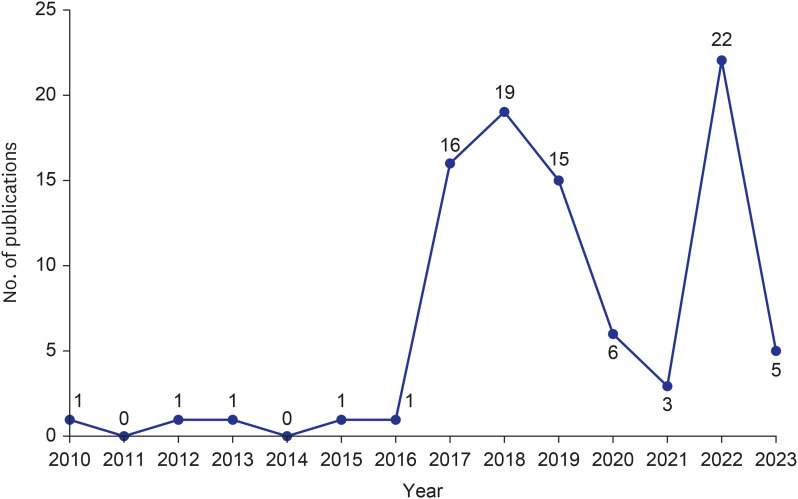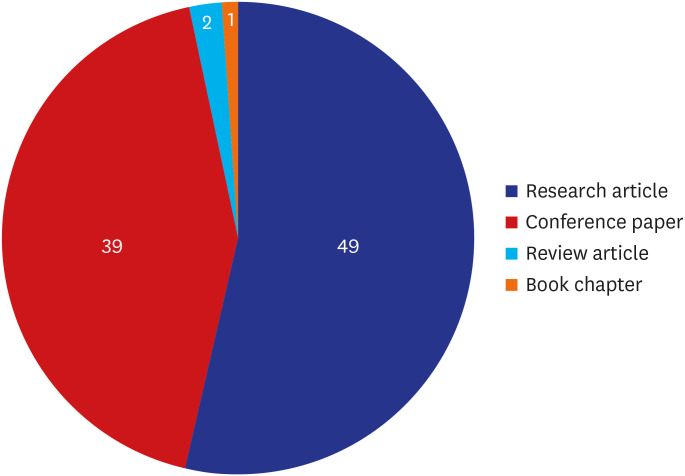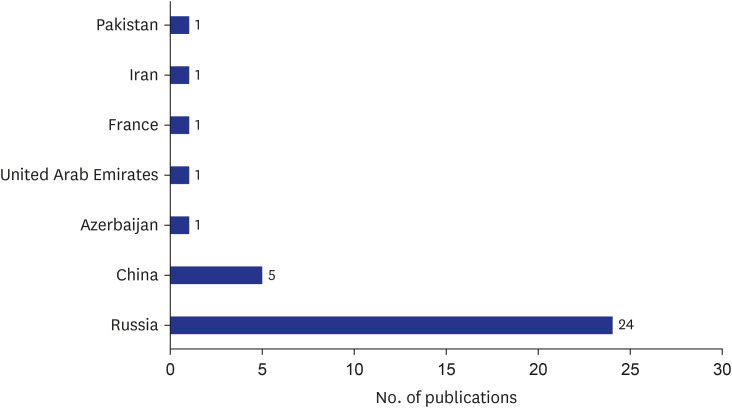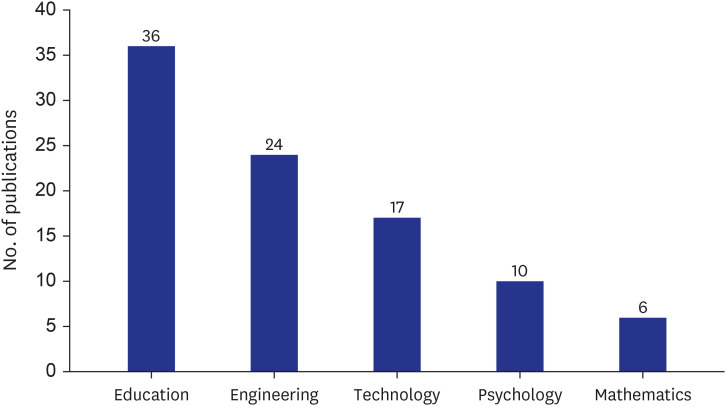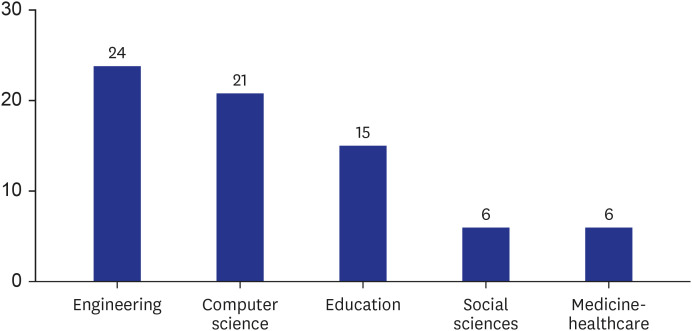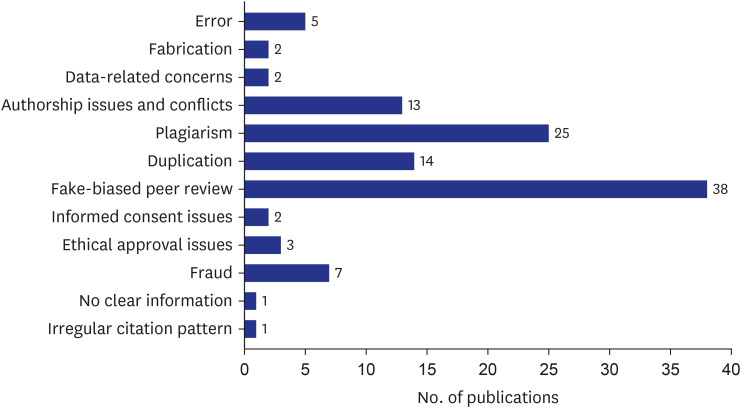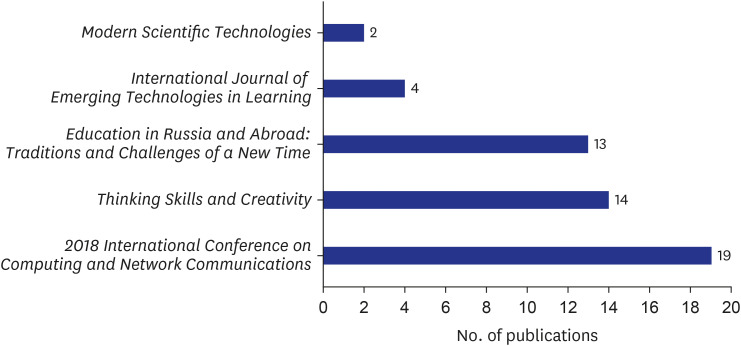J Korean Med Sci.
2023 Nov;38(46):e390. 10.3346/jkms.2023.38.e390.
Characteristics of Retracted Publications From Kazakhstan: An Analysis Using the Retraction Watch Database
- Affiliations
-
- 1Department of Physical Medicine and Rehabilitation, University of Health Sciences, Adana Health Practice and Research Center, Adana, Turkey
- 2Department of Scientific and Clinical Work, Doctoral and Master’s Studies, South Kazakhstan Medical Academy, Shymkent, Kazakhstan
- 3Physiotherapy and Rehabilitation Application and Research Center, Hasan Kalyoncu University, Gaziantep, Turkey
- 4Department of Biology and Biochemistry, South Kazakhstan Medical Academy, Shymkent, Kazakhstan
- KMID: 2548542
- DOI: http://doi.org/10.3346/jkms.2023.38.e390
Abstract
- Background
Retraction is a correction process for the scientific literature that acts as a barrier to the dissemination of articles that have serious faults or misleading data. The purpose of this study was to investigate the characteristics of retracted papers from Kazakhstan.
Methods
Utilizing data from Retraction Watch, this cross-sectional descriptive analysis documented all retracted papers from Kazakhstan without regard to publication dates. The following data were recorded: publication title, DOI number, number of authors, publication date, retraction date, source, publication type, subject category of publication, collaborating country, and retraction reason. Source index status, Scopus citation value, and Altmetric Attention Score were obtained.
Results
Following the search, a total of 92 retracted papers were discovered. One duplicate article was excluded, leaving 91 publications for analysis. Most articles were retracted in 2022 (n = 22) and 2018 (n = 19). Among the identified publications, 49 (53.9%) were research articles, 39 (42.9%) were conference papers, 2 (2.2%) were review articles, and 1 (1.1%) was a book chapter. Russia (n = 24) and China (n = 5) were the most collaborative countries in the retracted publications. Fake-biased peer review (n = 38), plagiarism (n = 25), and duplication (n = 14) were the leading causes of retraction.
Conclusion
The vast majority of the publications were research articles and conference papers. Russia was the leading collaborative country. The most prominent retraction reasons were fakebiased peer review, plagiarism, and duplication. Efforts to raise researchers’ understanding of the grounds for retraction and ethical research techniques are required in Kazakhstan.
Keyword
Figure
Reference
-
1. Boudry C, Howard K, Mouriaux F. Poor visibility of retracted articles: a problem that should no longer be ignored. BMJ. 2023; 381:e072929. PMID: 37339808.
Article2. Rivera H. Fake peer review and inappropriate authorship are real evils. J Korean Med Sci. 2018; 34(2):e6. PMID: 30636943.
Article3. Khan H, Gasparyan AY, Gupta L. Lessons learned from publicizing and retracting an erroneous hypothesis on the mumps, measles, rubella (MMR) vaccination with unethical implications. J Korean Med Sci. 2021; 36(19):e126. PMID: 34002546.
Article4. Vuong QH. The limitations of retraction notices and the heroic acts of authors who correct the scholarly record: an analysis of retractions of papers published from 1975 to 2019. Learn Publ. 2020; 33(2):119–130.
Article5. Yessirkepov M, Nurmashev B, Anartayeva M. A Scopus-based analysis of publication activity in Kazakhstan from 2010 to 2015: positive trends, concerns, and possible solutions. J Korean Med Sci. 2015; 30(12):1915–1919. PMID: 26713071.
Article6. Shen C, Björk BC. ‘Predatory’ open access: a longitudinal study of article volumes and market characteristics. BMC Med. 2015; 13(1):230. PMID: 26423063.
Article7. Ahmed S, Pinto B. The peer review process in Asia. Cent Asian J Med Hypotheses Ethics. 2020; 1(2):136–141.
Article8. Khan H, Gupta P, Zimba O, Gupta L. Bibliometric and Altmetric analysis of retracted articles on COVID-19. J Korean Med Sci. 2022; 37(6):e44. PMID: 35166080.
Article9. Kocyigit BF, Akyol A, Gulov MK, Yessirkepov M. Comparative analysis of Central Asian publication activity using SCImago Journal & Country Rank data in 1996-2021. J Korean Med Sci. 2023; 38(14):e104. PMID: 37038641.
Article10. Kocyigit BF, Akyol A. Bibliometric analysis of publication activity in the field of familial Mediterranean fever in 2010-2019: a Scopus-based study. Rheumatol Int. 2021; 41(11):2015–2023. PMID: 34499195.
Article11. Kocyigit BF, Akyol A. Bibliometric and Altmetric analyses of publication activity in the field of Behcet’s disease in 2010-2019. J Korean Med Sci. 2021; 36(32):e207. PMID: 34402225.
Article12. Kocyigit BF, Akyol A. Analysis of retracted publications in the biomedical literature from Turkey. J Korean Med Sci. 2022; 37(18):e142. PMID: 35535370.
Article13. Elango B. Characteristics of retracted editorial articles in the biomedical literature. Scientometrics. 2022; 127(3):1431–1438. PMID: 35001989.
Article14. Rapani A, Lombardi T, Berton F, Del Lupo V, Di Lenarda R, Stacchi C. Retracted publications and their citation in dental literature: a systematic review. Clin Exp Dent Res. 2020; 6(4):383–390. PMID: 32233020.
Article15. Ferraro MC, Moore RA, de C Williams AC, Fisher E, Stewart G, Ferguson MC, et al. Characteristics of retracted publications related to pain research: a systematic review. Pain. 2023; 164(11):2397–2404. PMID: 37310441.
Article16. Wang X, Gao N, Chen H, Wang W. Review of retracted papers in the field of neurology. Eur J Neurol. 2023; ene.15960.
Article17. Gupta L, Tariq J, Yessirkepov M, Zimba O, Misra DP, Agarwal V, et al. Plagiarism in non-anglophone countries: a cross-sectional survey of researchers and journal editors. J Korean Med Sci. 2021; 36(39):e247. PMID: 34636502.
Article18. Park S, Yang SH, Jung E, Kim YM, Baek HS, Koo YM. Similarity analysis of Korean medical literature and its association with efforts to improve research and publication ethics. J Korean Med Sci. 2017; 32(6):887–892. PMID: 28480644.
Article19. Pourhoseingholi MA, Vahedian-Azimi A. Comments of “A Survey of Iranian Retracted Publications Indexed in PubMed”. Iran J Public Health. 2021; 50(6):1300–1301. PMID: 34540758.
Article20. Decullier E, Huot L, Maisonneuve H. What time-lag for a retraction search on PubMed? BMC Res Notes. 2014; 7(1):395. PMID: 24965905.
Article21. Campos-Varela I, Ruano-Raviña A. Misconduct as the main cause for retraction. A descriptive study of retracted publications and their authors. Gac Sanit. 2019; 33(4):356–360. PMID: 29776690.
Article22. Ahmed S, Anirvan P. Top Central Asian educational institutions on Publons: analysis of researchers and reviewers. J Korean Med Sci. 2021; 36(21):e144. PMID: 34060259.
Article23. Oransky I. Which countries have the most retractions, for which reasons? Updated 2014. Accessed July 20, 2023. https://retractionwatch.com/2014/05/15/which-countries-have-the-most-retractions-for-which-reasons/ .24. Bhatt B. A multi-perspective analysis of retractions in life sciences. Scientometrics. 2021; 126(5):4039–4054.
Article25. Elango B, Kozak M, Rajendran P. Analysis of retractions in Indian science. Scientometrics. 2019; 119(2):1081–1094.
Article26. Kamali N, Talebi Bezmin Abadi A, Rahimi F. Plagiarism, fake peer-review, and duplication: predominant reasons underlying retractions of Iran-affiliated scientific papers. Sci Eng Ethics. 2020; 26(6):3455–3463. PMID: 33146787.
Article27. Chen W, Xing QR, Wang H, Wang T. Retracted publications in the biomedical literature with authors from mainland China. Scientometrics. 2018; 114(1):217–227.
Article28. Smartz TM, Jabori SK, Djulbegovic MB, Watane A, Sayegh Y, Lyons N, et al. Correlation between Altmetric Scores and citation count in 4 high-impact plastic surgery journals. Aesthet Surg J. 2023; 43(11):NP943–NP948. PMID: 37474313.
Article29. Ravipati A, Pradeep T, Nouri K. The top 100 most cited Mohs micrographic surgery articles: an analysis of Altmetrics data from 2010 to 2020. Arch Dermatol Res. 2023; 315(9):2571–2573. PMID: 37395752.
Article30. Memon AR. Revisiting the term predatory open access publishing. J Korean Med Sci. 2019; 34(13):e99. PMID: 30950249.
Article31. Severin A, Strinzel M, Egger M, Domingo M, Barros T. Characteristics of scholars who review for predatory and legitimate journals: linkage study of Cabells Scholarly Analytics and Publons data. BMJ Open. 2021; 11(7):e050270.
Article
- Full Text Links
- Actions
-
Cited
- CITED
-
- Close
- Share
- Similar articles
-
- Analysis of Retracted Publications in Medical Literature Due to Ethical Violations
- Analysis of Retracted Publications in The Biomedical Literature from Turkey
- Bibliometric and Altmetric Analysis of Retracted Articles on COVID-19
- Peer Reviewers in Central Asia: Publons Based Analysis
- RETRACTION: Dietary Intake of Omega-3 Fatty Acids and Endocrine-Related Gynecological Cancer: A Meta-Analysis of Observational Studies

